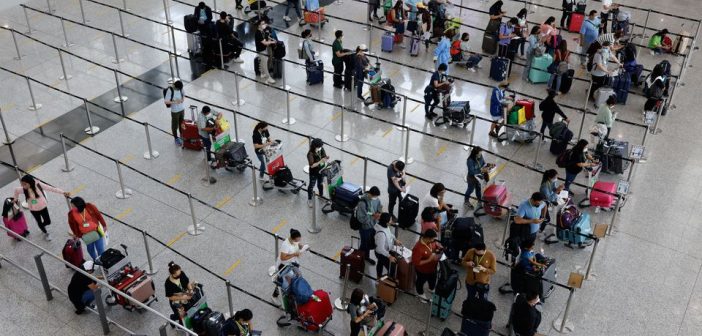Hong Kong will scrap its controversial COVID-19 hotel quarantine policy for all arrivals from Sept. 26, more than 2.5 years after it was first implemented, in a long-awaited move for many residents and businesses in the financial hub.
All international arrivals will be able to return home or to accommodation of their choice but will have to self-monitor for three days after entering the Chinese special administrative hub, the government said on Friday.
“We are aiming in one single direction of allowing people to come with more convenience and they are allowed to go about their activities with maximum possibilities,” Chief Executive John Lee told a press briefing.
People will be allowed to go to work or school but will not be allowed to enter bars or restaurants for three days. A pre flight PCR test which was required for travellers to Hong Kong 48 hours before flying will be replaced by a Rapid Antigen Test.
The former British colony is a global outlier outside mainland China in imposing hotel quarantine for international arrivals, in line with the country’s “dynamic zero” COVID strategy.
Business groups, diplomats and many residents have slammed the city’s COVID-19 rules, saying they threaten Hong Kong’s competitiveness and standing as a global financial centre.
All international arrivals currently spend three days in a self-paid hotel followed by four days of self-monitoring where they are allowed to move around the city. Hotel quarantine was as much as three weeks before being gradually eased earlier this year.
Scores of flights have stopped operating to and from Hong Kong, which used to be one of the world’s busiest and most efficient airports.
The city has lost its position as a global aviation hub due to China’s zero-COVID policy, head of airlines group IATA said this week.
Source: Reuters

